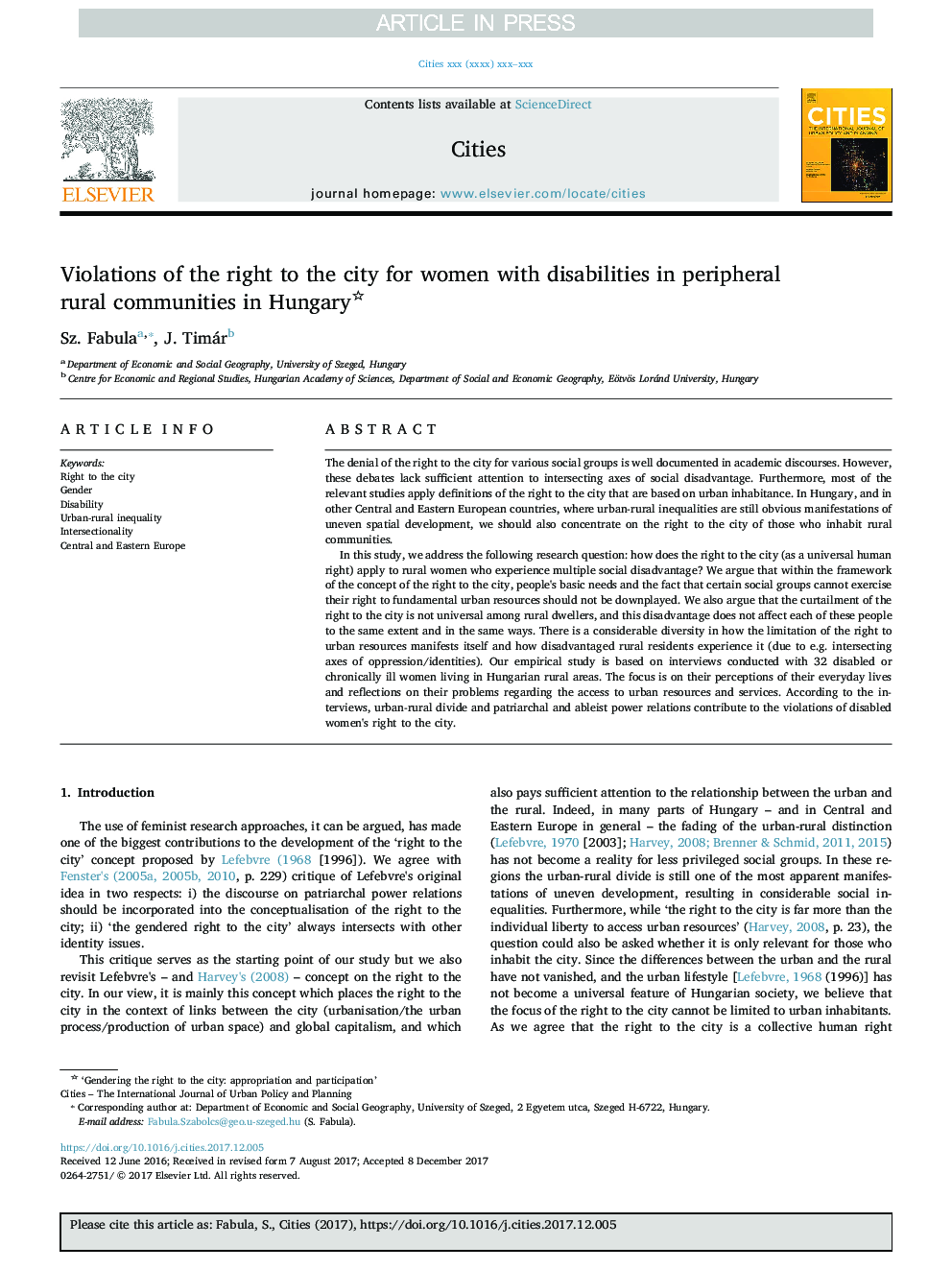| Article ID | Journal | Published Year | Pages | File Type |
|---|---|---|---|---|
| 7417394 | Cities | 2018 | 6 Pages |
Abstract
In this study, we address the following research question: how does the right to the city (as a universal human right) apply to rural women who experience multiple social disadvantage? We argue that within the framework of the concept of the right to the city, people's basic needs and the fact that certain social groups cannot exercise their right to fundamental urban resources should not be downplayed. We also argue that the curtailment of the right to the city is not universal among rural dwellers, and this disadvantage does not affect each of these people to the same extent and in the same ways. There is a considerable diversity in how the limitation of the right to urban resources manifests itself and how disadvantaged rural residents experience it (due to e.g. intersecting axes of oppression/identities). Our empirical study is based on interviews conducted with 32 disabled or chronically ill women living in Hungarian rural areas. The focus is on their perceptions of their everyday lives and reflections on their problems regarding the access to urban resources and services. According to the interviews, urban-rural divide and patriarchal and ableist power relations contribute to the violations of disabled women's right to the city.
Related Topics
Social Sciences and Humanities
Business, Management and Accounting
Tourism, Leisure and Hospitality Management
Authors
Sz. Fabula, J. Timár,
